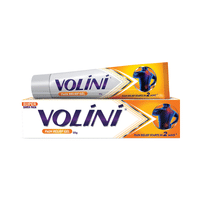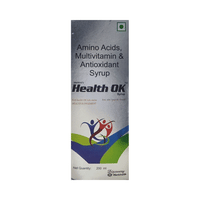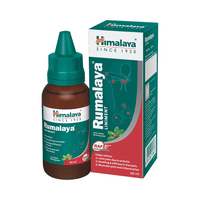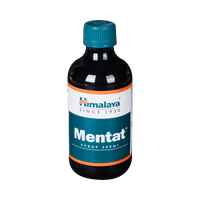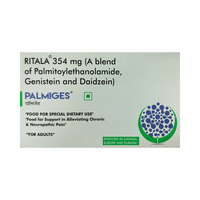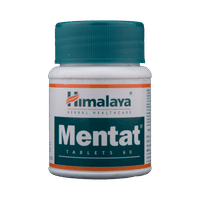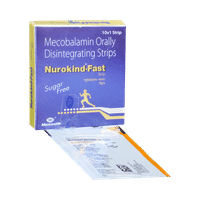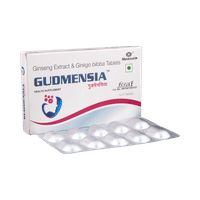Rs.688for 1 strip(s) (10 tablet sr each)
Storax Tablet SR के लिए भोजन प्रभाव
Storax Tablet SR के लिए शराब प्रभाव
Storax Tablet SR के लिए गर्भावस्था प्रभाव
Storax Tablet SR के लिए स्तनपान प्रभाव
भोजन
शराब
गर्भावस्था
स्तनपान
Storax 1000mg Tablet SR may be taken with or without food, but it is better to take it at a fixed time.
None
None
CAUTION
It is not known whether it is safe to consume alcohol with Storax 1000mg Tablet SR. Please consult your doctor.
CONSULT YOUR DOCTOR
Information regarding the use of Storax 1000mg Tablet SR during pregnancy is not available. Please consult your doctor.
CONSULT YOUR DOCTOR
Information regarding the use of Storax 1000mg Tablet SR during breastfeeding is not available. Please consult your doctor.
CONSULT YOUR DOCTOR
Storax 1000mg Tablet SR की लवण सम्बन्धी जानकारी
Citicoline(1000mg)
Storax tablet sr का उपयोग
{med_name} is used in the treatment of Alzheimer's disease, stroke, dementia in Parkinson's disease and head injury.
Storax tablet sr कैसे काम करता है
Storax 1000mg Tablet SR is a nerve protecting medicine. It nourishes the nerve cells, protects them from damage and improves their survival by producing certain brain chemicals including phosphatidylcholine and acetylcholine. It also reduces free fatty acid buildup at the site of nerve damage.
Storax tablet sr के सामान्य दुष्प्रभाव
Decreased blood pressure, Arrhythmia (irregular heartbeats), Stomach pain, Diarrhea, Insomnia (difficulty in sleeping), Rash, Peripheral neuropathy (tingling and numbness of feet and hand)
Storax Tablet SR का विकल्प
6 विकल्प
6 विकल्प
Sorted By
 Rs. 646.88save 10% more per Tablet SR
Rs. 646.88save 10% more per Tablet SR Rs. 780.94pay 9% more per Tablet SR
Rs. 780.94pay 9% more per Tablet SR Rs. 643.59save 10% more per Tablet SR
Rs. 643.59save 10% more per Tablet SR Rs. 730.31pay 2% more per Tablet SR
Rs. 730.31pay 2% more per Tablet SR Rs. 39.86save 94% more per Tablet SR
Rs. 39.86save 94% more per Tablet SR
Storax Tablet SR के लिए विशेषज्ञ की सलाह
- Citicoline helps in the treatment of stroke, head injury, Alzheimer's disease, and dementia in Parkinson's disease.
- Do not take this medicine in higher amounts or frequency than that told by your doctor.
- Do not drive or do anything that requires mental focus until you know how it affects you.
- Inform your doctor if you develop an allergic reaction after taking the medication.
- Side effects such as trouble sleeping, diarrhea, stomach pain, decreased blood pressure, irregular heart rate may occur with Citicoline. These may not be with everyone.
- Any of the side effects other than those mentioned above if occur, do consult the treating physician.
Storax 1000mg Tablet SR के लिए अक्सर पूछे जाने वाले सवाल
Citicoline
Q. I have been prescribed Storax 1000mg Tablet SR for Alzheimer’s disease. What is its role, and how does it work?
Storax 1000mg Tablet SR is a form of an essential nutrient called choline which is naturally present in the body. It protects the nerve cells in the brain from damage and also helps to repair the damaged nerve cells. Therefore, it improves learning, memory, and cognitive function (processing information or perception) in Alzheimer’s disease.
Q. Can I take alcohol during treatment with Storax 1000mg Tablet SR?
There are no studies to determine the effect of alcohol on treatment with Storax 1000mg Tablet SR. However, since Storax 1000mg Tablet SR is prescribed for stroke, Alzheimer’s disease, Parkinson’s disease, head injury, and age-related memory impairment, it is best to avoid the consumption of alcohol.
Q. Can students take Storax 1000mg Tablet SR to improve memory and learning?
No, students should not take Storax 1000mg Tablet SR since studies show that Storax 1000mg Tablet SR is effective only in age-related memory problems, memory problems associated with long-standing stroke, and in Alzheimer’s disease. Moreover, there is no data available for use of this medicine in children.













